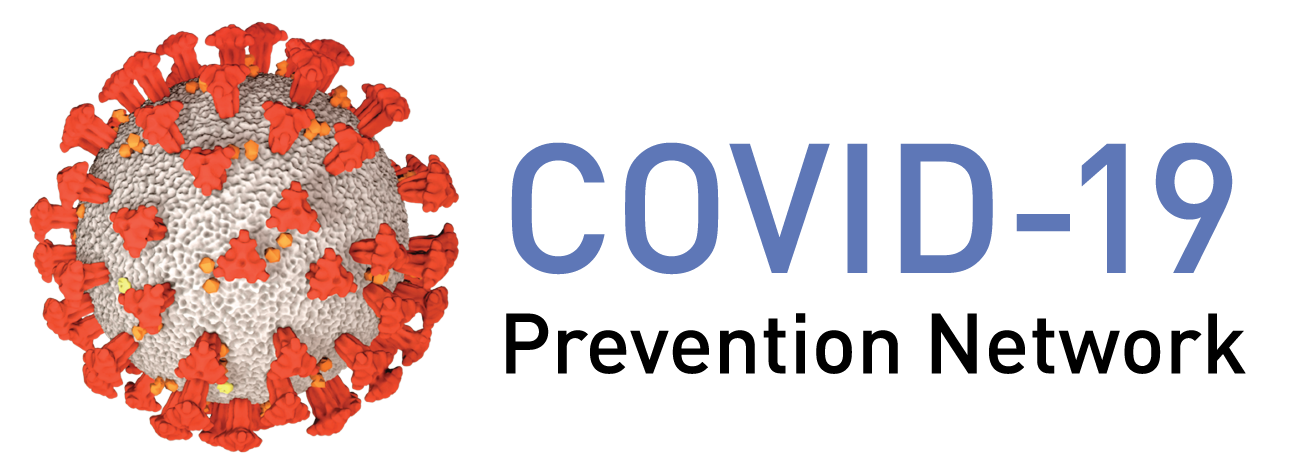

Harmonizing Efforts to Conduct Large Scale COVID-19 Vaccine Efficacy Trials
COVID-19 Prevention Network Named
SEATTLE, JULY 9, 2020 – A clinical trial called CoVPN 5001 will help the newly formed COVID-19 Prevention Network (CoVPN) understand early SARS-CoV-2 infection and the body’s early immune responses to the virus that causes COVID-19 illness. Gathered from diverse populations worldwide, the data obtained through this study will describe viral progression and immunological characteristics of early infection with SARS-CoV-2. Information about the clinical course of SARS-CoV-2 infection, especially during its early stage, is needed to close knowledge gaps and will potentially suggest markers of protection that could be used in evaluating the efficacy of future COVID-19 vaccine candidates.
"The CoVPN 5001 study is the first study conducted under the aegis of the CoVPN, and is designed to develop the clinical and laboratory pipelines for the rapid implementation of future COVID vaccine efficacy trials while conducting groundbreaking scientific investigations," said Will Hahn, M.D., Protocol Chair for CoVPN 5001 and staff scientist at Fred Hutchinson Cancer Research Center. "The protocol is explicitly designed to be a ‘dry run’ for pivotal trials testing the efficacy of a COVID vaccine," Hahn concluded.
CoVPN 5001 is designed to follow an estimated 800 study participants aged 18 years or older who have tested positive for SARS-CoV-2 infection. Study participants will be enrolled into one of three groups: those showing no symptoms, those showing mild symptoms, and those showing severe symptoms that require hospitalization. Participants may move between groups if their symptoms worsen over the course of the study.
Six study visits spread over one month will be conducted at either a participating trial site, hospital, or at the place where the study participant resides. Samples to be collected from participants include blood samples, nasal samples, saliva samples, and urine samples. The collection of stool samples will be optional. These sample collections may be done either by clinic staff or the study participant themselves. Blood samples will only be collected by clinic staff. A final study visit to check on the health of study participants will be conducted approximately two months after enrollment.
SARS-CoV-2 is the most infectious of three coronaviruses that have caused recent epidemics resulting in significant morbidity and mortality in humans in the past 20 years. Since declared a pandemic by the World Health Organization on March 11, COVID-19 has claimed a significant number of lives. A safe and effective vaccine [to prevent the acquisition and transmission of SARS-CoV-2] is necessary to reduce morbidity and mortality and aid the global community to return to a thriving social and economic global infrastructure.
"The participants in this study will give us a unique opportunity to understand the natural immune responses in the early stage of infection. Without the community’s support, science can’t move forward," said Gail Broder, MHS, Community Engagement Lead for CoVPN 5001 and CoVPN Senior Community Engagement Project Manager at Fred Hutch.
The CoVPN will use existing clinic and laboratory infrastructure to capture clinical and immunologic information among persons with acute SARS-CoV-2 infection. CoVPN 5001 will take place across more than 58 participating trial sites in the United States, South America and sub-Saharan Africa.
Clinical Trial Sites (17) in the U.S. Participating in CoVPN 5001
Atlanta, GA
- The Hope Clinic of the Emory Vaccine Center
- Ponce de Leon Center
Baltimore, MD
- Johns Hopkins University
Birmingham, AL
- University of Alabama - Birmingham
Boston, MA
- Brigham and Women's Hospital Vaccine
- Fenway Health
Chapel Hill, NC
- University of North Carolina -Chapel Hill
Cleveland, OH
- Case Western Reserve/University Hospital
Miami, FL
- University of Miami
Newark, NJ
- New Jersey Medical School
New Orleans, LA
- Adolescent Trials Unit
New York, NY
- Columbia Physicians & Surgeons
- NY Blood Center
Philadelphia, PA
- University of Pennsylvania
San Francisco, CA
- San Francisco Department of Public Health
Seattle, WA
- Seattle Vaccine Trials Unit
St. Louis, MO
- St. Louis University
Clinical Trial Sites (12) in South America Participating in CoVPN 5001
Argentina
-
Buenos Aires
- Balvanera, Ramos Mejia
- Fundacion Huesped
-
Rosario
- Instituto CAICI
Brazil
-
Belo Horizonte
- FUMG
-
Rio de Janeiro
- IPEC-Fiocruz
Mexico
-
Merida
- Unidad de Atención Medicae Investigacion en Salud (UNAMIS)
-
Mexico City
- Instituto Nacional de Ciencias Médicasy Nutrición Salvador Zubirán / Clínica Especializada Condesa Iztapalapa
Peru
-
Iquitos
- Asociacion Civil Selva Amazonica
-
Lima
- Impacta - Barranco
- Impacta - San Miguel
- San Marcos
- Via Libre
Clinical Trial Sites (31) in Sub-Saharan Africa Participating in CoVPN 5001
South Africa
-
Cape Town
- Groote Schuur Clinical Research Site
- Khayelitsha-eKhaya Vac Clinic
- Masiphumelele Desmond Tutu HIV Foundation
-
Durban
- Botha’s Hill Clinical Research Site
- CAPRISA
- Chatsworth Clinical Research Site
- Isipingo Clinical Research Site
- Tongaat Clinical Research Site
- Verulam Clinical Research Site
- Vulindlela Clinical Research Site
-
Elandsdoorn
- Ndlovu Research Centre
-
Klerksdorp
- The Aurum Institute Klerksdorp Clinical Research Site
-
Ladysmith
- Qhakaza Mbokodo Research Clinic
-
Medunsa
- MeCRUMedunsa
-
Mthatha
- Nelson Mandela Academic Clinical Research Unit (NeMACRU)
-
Rustenburg
- The Aurum Institute Rustenburg Clinical Research Center
-
Soweto
- PHRU-Kliptown
- Soweto Bara
-
Soshanguve
- Setshaba RC
-
Tembisa
- Aurum, Tembisa Clinic 4
Botswana
-
Gaborone
- Botswana Harvard AIDS Institute Partnership
Kenya
-
Kisumu
- KEMRI CGHR Clinical Research Centre
Mozambique
-
Maputo
- Polana Canico Health Research and Training Center Network
Malawi
-
Lilongwe
- UNC Project Lilongwe
Tanzania
-
Mbeya
- National Institute for Medical Research Centre-Mbeya Medical Research Centre (NIMR-MMRC)
Zambia
-
Lusaka
- Matero
- ZEHRP Lusaka
-
Ndola
- ZEHRP Ndola
Zimbabwe
-
Harare
- Milton Park
- Seke South
- St. Mary’s
CoVPN 5001 is sponsored by NIH’s National Institute of Allergy and Infectious Diseases. Interested individuals can email for more information.
About The COVID-19 Prevention Network (CoVPN)
The COVID-19 Prevention Network (CoVPN) was formed by the National Institute of Allergy and Infectious Diseases (NIAID) at the US National Institutes of Health to respond to the global pandemic. Through the CoVPN, NIAID is leveraging the infectious disease expertise of its existing research networks and global partners to address the pressing need for vaccines and antibodies against SARS-CoV-2. CoVPN will work to develop and conduct studies to ensure rapid and thorough evaluation of vaccines and antibodies for the prevention of COVID-19. The CoVPN is headquartered at the Fred Hutchinson Cancer Research Center.
About Fred Hutch
At Fred Hutchinson Cancer Research Center, home to three Nobel laureates, interdisciplinary teams of world-renowned scientists seek new and innovative ways to prevent, diagnose and treat cancer, HIV/AIDS and other life-threatening diseases. Fred Hutch’s pioneering work in bone marrow transplantation led to the development of immunotherapy, which harnesses the power of the immune system to treat cancer. An independent, nonprofit research institute based in Seattle, Fred Hutch houses the nation’s first National Cancer Institute-funded cancer prevention research program, as well as the clinical coordinating center of the Women’s Health Initiative and the international headquarters of the NIAID-funded HIV Vaccine Trials Network and the newly formed COVID-19 Prevention Network (CoVPN).
CoVPN Media Relations
Aziel Gangerdine
Cellular:
Claire Hudson
Content last reviewed on April 15, 2021
